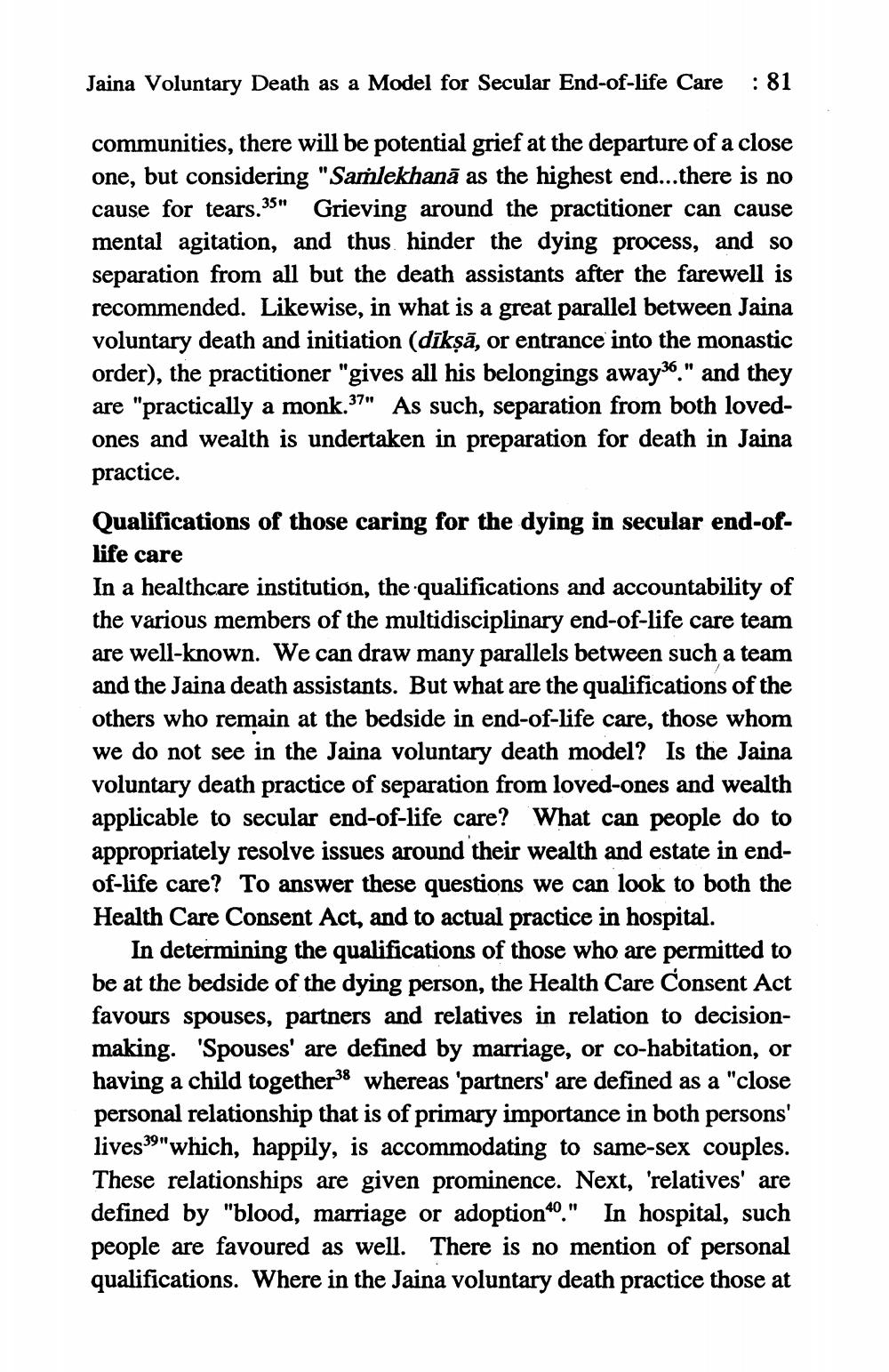________________
Jaina Voluntary Death as a Model for Secular End-of-life Care
: 81
communities, there will be potential grief at the departure of a close one, but considering "Samlekhanā as the highest end...there is no cause for tears.35" Grieving around the practitioner can cause mental agitation, and thus hinder the dying process, and so separation from all but the death assistants after the farewell is recommended. Likewise, in what is a great parallel between Jaina voluntary death and initiation (dikṣā, or entrance into the monastic order), the practitioner "gives all his belongings away36." and they are "practically a monk.37" As such, separation from both lovedones and wealth is undertaken in preparation for death in Jaina practice.
Qualifications of those caring for the dying in secular end-oflife care In a healthcare institution, the qualifications and accountability of the various members of the multidisciplinary end-of-life care team are well-known. We can draw many parallels between such a team and the Jaina death assistants. But what are the qualifications of the others who remain at the bedside in end-of-life care, those whom we do not see in the Jaina voluntary death model? Is the Jaina voluntary death practice of separation from loved ones and wealth applicable to secular end-of-life care? What can people do to appropriately resolve issues around their wealth and estate in endof-life care? To answer these questions we can look to both the Health Care Consent Act, and to actual practice in hospital.
In determining the qualifications of those who are permitted to be at the bedside of the dying person, the Health Care Consent Act favours spouses, partners and relatives in relation to decisionmaking. 'Spouses' are defined by marriage, or co-habitation, or having a child together whereas 'partners' are defined as a "close personal relationship that is of primary importance in both persons' lives39" which, happily, is accommodating to same-sex couples. These relationships are given prominence. Next, 'relatives' are defined by "blood, marriage or adoption40." In hospital, such people are favoured as well. There is no mention of personal qualifications. Where in the Jaina voluntary death practice those at




